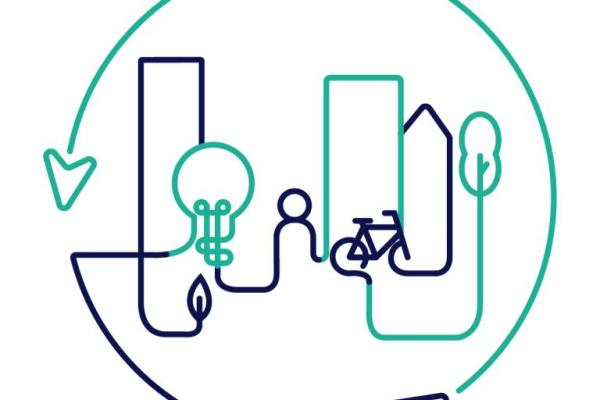
Innovative Actions
The 3rd call for Innovative Actions opened on 6th May and will close on 14th October 2024. Results are anticipated in March 2025. €90 million euros is available for up to twenty IA projects based on the topics of Energy Transition or Technology in Cities. You can learn more by accessing the EUI’s Innovative Actions Guidance. The Terms of Reference of the 3rd call is a useful place to start.
Projects should be Innovative, Participative, Measurable, Transferable & Scalable, and of Good Quality in their experimental approach to solving an urban challenge under either of these topics. You can read more on the call 3 page here. The primary set of criteria for applicants is that your urban authority should have a population of at least 50,000 people and at least 51% of the total population should reside in local electoral areas that are classified as either urban (1) or suburban (2). More on this below.
In applying this eligibility criteria to Ireland, and taking the local authority as the applicant, while the population rule is comfortably reached for most Irish local authorities, however, in addition to this, the local authority should have at least 51% of its total population located within local electoral areas that are classified by Eurostat as being DEGURBA (degrees of urbanization) 1: urban or 2: sub-urban.
You can access this information through the Correspondence Table in the sidebar. The data is filtered for Ireland. You will be able to view the status of each local electoral area in column “H”, i.e. urban (1), suburban (2), or rural (3). Other relevant columns are “C”- the LAU or Local Electoral Area (LEA) as it is referred to in Ireland; column “F” containing the population of each LEA; and column “I”, the respective local authority in which each LEA is situated.
You can also engage the online eligibility self-assessment tool.
City-to-City Exchanges
These exchanges see urban and suburban towns and cities around Europe meet around an urban challenge on which one/two localities is experienced in tackling, and which another locality wants to take some learnings from in meeting its implementation challenge! The applicant will visit the peer, followed by the peer’s return visit to the applicant. Visits might last for between two and five days. Up to four persons can travel as part of the applicant’s delegation with travel, accommodation and subsistence covered. The EUI can appoint a moderator to facilitate the exchange and learning.
This Exchange follows a simple application and it is quite a short process with all visits concluding within 5 months. The opportunity to engage in a City-to-City Exchange remains open on a continuous basis.
You can read more about the call here. You can also book a consultation with the Secretariat here. A match-making event occurred in April and you can access the recording here.
In applying this opportunity to Ireland, unlike Innovative Actions, population is not a barrier. The exchange can be enjoyed by towns and cities of any size, but these must be based in local electoral areas classified as urban or suburban. However, in addition to this, “article 11 cities” are also eligible. In Ireland, this has relevance for our cities and suburbs, regional growth centres and key towns as identified by the three Irish Regions’ Spatial and Economic Strategies (RSES). You can learn more about what an “article 11 city” is here. A list of these localities in Ireland can be identified by filtering countries on the associated Excel located in the sidebar.
Like described earlier, you can access this information (on degrees of urbanisation) in the Correspondence Table in the sidebar. By clicking the Ireland “IE” sheet of the Excel, you will be able to view the status of each local electoral area in column “H”, i.e. urban (1), suburban (2), or rural (3).

Capacity Building
Peer Reviews
The Peer Review call provides a unique opportunity for our urban localities to design/improve sustainable urban development strategies under the review of up to six peer cities. The Peer Review experience is longer than the above-described City-to-City Exchange. It is a process lasting several months, with the main milestone being a two-day event bringing together three different cities under review, alongside their respective groups of up to six peer reviewers.
While a Peer Review call closed at the end of April, a new one is envisaged for quarter 4, 2024. To understand this opportunity further, you can read more about the recently-closed call here. You can access the online info session held by the EUI secretariat on April 9 here. Upon the call being re-opened again later this year, it will be possible to book bilateral consultations with a Secretariat member here.
In applying this opportunity to Ireland:
On the side of being reviewed: the opportunity is aimed at article 11 "cities" as applicants, as further described in the above section You can see the eligible Irish localities by accessing the resource in the sidebar. Applicants can see the Peer Review process as being of potential help in reviewing their current sustainable urban development strategy or in forming one to begin with! You can be at any stage of this process and the key question to ask yourself as an applicant is if this review process can be of help to you. If the answer is yes, be assured it makes sense to apply!
On the side of being reviewers/peers: regardless of article 11 status, it is possible for other Irish urban and suburban localities (degrees of urbanization (1) and (2)) to partake in reviewing the sustainable urban development strategies of other European localities. Like described earlier, you can determine the eligible LEAs in the Correspondence Table in the sidebar.
If you have any questions pertaining to any of the above items, don’t hesitate to reach out to Urban Contact Point Karl Murphy at kmurphy@emra.ie
